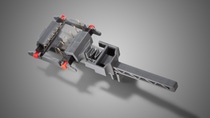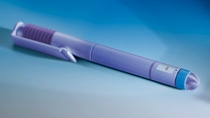Produkti
Ultraform® PRO for Medical Applications
We offer engineering plastics that have been optimized not only for medical applications (PRO = Profile covered Raw materials Only) but also with a comprehensive service package that guarantees formulation consistency and safety – from the raw material through to the patient.


Ultraform® PRO – Polyoxymethylene Plastics (POM)
The PRO Service Package Contains
| The intention not to change the formulation1 in the long term (with the exception of alterations required in the event of legal or regulatory changes) | ►Allows long-term planning for the customer |
| The promise to give customers at least 3 years notice, if there have to be changes to the formulation* | ►Allows long-term planning for the customer |
| BASF suppliers are obliged to guarantee the purity of the substances supplied to BASF | ►Reduces testing efforts |
| Worldwide support with approvals for medical and pharmaceutical applications and for food contact | ►Simplifies and shortens registration procedure for the client |
| Testing of compatibility of plastic with specific chemicals |
►Reduces testing efforts ►Simplifies decisions |
| Technical support for applications (processing, design, calculation) | ►Reduces and simplifies the development phase |
| 1 Formulation as defined in the Drug Master File (DMF) |
Approvals
Disclaimer
BASF has not designed or tested its plastics with respect to all of the special requirements related to their use in medical devices and pharmaceutical applications. Therefore, BASF makes no warranties concerning the suitability of any BASF plastics for use in any medical device and pharmaceutical applications. Subject to an evaluation and a release in each individual case and, if necessary, acceptance of a disclaimer by the customer, BASF is in general prepared to supply plastics for medical applications. However, BASF does not supply its plastics for the manufacture of implants in any risk class. In all cases the BASF customer has to establish from their own experience and from tests on BASF plastics, that these plastics are suitable for the manufacture of products for medical applications or pharmaceutical applications and the customers have to ensure that the medical device or pharmaceutical application manufactured using BASF plastics is safe, lawful and technically suitable for the intended use.